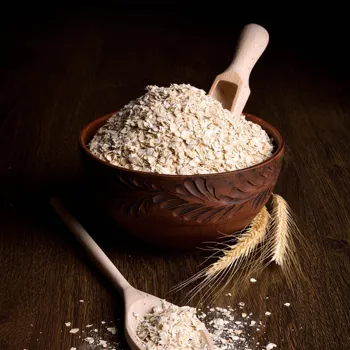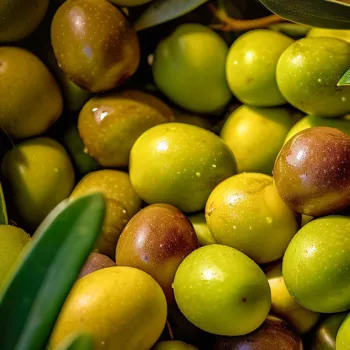Discover 10 simple swaps to cut down on processed foods and improve your health. Read more for a healthier you!
In today's fast-paced world, processed foods have become a staple in many Indian households.
They're convenient, readily available, and often cheaper than fresh alternatives. But did you know that frequent consumption of processed foods can negatively impact your health in the long run?
These foods are typically loaded with sugar, salt, unhealthy fats, and artificial additives, which can lead to weight gain, heart problems, and other health issues.
The good news is, making small, sustainable changes to your diet can significantly reduce your intake of processed foods and improve your overall well-being. Here are 10 simple swaps to get you started on a healthier journey.
Swap Packaged Snacks for Homemade Goodies
Instead of reaching for that packet of chips or biscuits, opt for homemade snacks like roasted chana, puffed rice (murmura) with spices, or a handful of nuts and seeds. These options are not only more nutritious but also free from artificial flavors and preservatives.
Choose Whole Grains Over Refined Flour Products
Replace white bread, maida rotis, and refined pasta with whole wheat bread, atta rotis, and whole wheat pasta. Whole grains are rich in fiber, which aids digestion and keeps you feeling full for longer.

Make Your Own Spice Blends
Store-bought spice mixes often contain hidden sugars, salt, and artificial coloring. Create your own spice blends using fresh or dried spices like turmeric, cumin, coriander, and chili powder. This way, you have complete control over the ingredients and can adjust the flavors to your liking.
Opt for Fresh or Frozen Fruits and Vegetables
Canned fruits and vegetables are often packed in sugary syrups or salty solutions. Choose fresh, seasonal produce whenever possible, or opt for frozen fruits and vegetables, which retain most of their nutrients and are a convenient option when fresh produce is not available.
Prepare Your Own Breakfast
Instead of grabbing a sugary cereal or instant breakfast mix, make your own breakfast using oats, poha, upma, or idli. These options are more nutritious and will keep you energized throughout the morning.

Limit Sweetened Beverages
Sodas, packaged juices, and energy drinks are loaded with sugar and empty calories. Replace them with water, coconut water, lassi (homemade yogurt drink), or fresh lime juice.
Read Food Labels Carefully
Before buying any packaged food, take the time to read the nutrition label. Pay attention to the serving size, calories, sugar content, sodium content, and the list of ingredients. Avoid products that are high in sugar, salt, unhealthy fats, and artificial additives.
Cook More Meals at Home
Eating out or ordering takeaways frequently exposes you to hidden sugars, fats, and sodium. Cooking more meals at home allows you to control the ingredients and portion sizes.
Plan Your Meals in Advance
Planning your meals for the week can help you avoid impulse purchases of processed foods. Create a shopping list based on your meal plan and stick to it.
Make Gradual Changes
Don't try to overhaul your diet overnight. Start by making one or two small changes each week and gradually incorporate more healthy habits. This will make the transition easier and more sustainable in the long run.
Swap processed foods for whole foods for a healthier diet
By implementing these simple swaps, you can significantly reduce your intake of processed foods and reap the numerous health benefits of a more wholesome diet. Remember, small changes can make a big difference!
Beware of hidden sugars in processed foods for better health
Processed foods often contain hidden sugars in the form of high fructose corn syrup or dextrose. These sugars can lead to weight gain, increase the risk of type 2 diabetes, and contribute to heart problems.
Reading food labels meticulously can help you identify these hidden sugars and make informed choices. Opting for natural sweeteners like honey or jaggery in moderation can be a healthier alternative. Also, try flavoring your food by adding cinnamon, cardamom or nutmeg instead of sugar.
High-sodium processed foods raise heart disease risk; Indians must reduce intake
Processed foods are typically high in sodium, which can raise blood pressure and increase the risk of heart disease. Many Indians struggle with hypertension, therefore it is important to reduce sodium intake. Check the sodium content on food labels and choose low-sodium options whenever possible.
Cooking at home allows you to control the amount of salt you add to your food. Try using herbs and spices to enhance the flavor of your dishes instead of relying on salt.
Choose healthier fats to lower heart disease risk
Unhealthy fats, such as trans fats and saturated fats, are commonly found in processed foods. These fats can raise cholesterol levels and increase the risk of heart disease.

Choose products that are low in saturated and trans fats and opt for healthier fats like those found in olive oil, nuts, and seeds. Be mindful of fried foods, as they are often high in unhealthy fats. Look for baking and other healthy alternatives.
Avoid artificial additives in processed foods for better health
Artificial additives, such as artificial colors, flavors, and preservatives, are often added to processed foods to enhance their appearance, taste, and shelf life. Many people are sensitive to these additives, which can cause allergic reactions, headaches, and other health problems.
Choose foods that are free from artificial additives whenever possible. Reading food labels is essential to identify these potentially harmful ingredients.
Start small by swapping unhealthy items with healthier options
While making changes, it is important that one should start with easily implementable steps. Replacing one unhealthy item from the diet with a healthier item is a good approach. This will ensure that there is no sudden shock to one's taste buds or body.
For instance, replacing carbonated drinks with freshly squeezed juice, especially lemon juice, is a simple and effective first step.
Indians benefit from lactose-free alternatives for better digestion
Most of the Indians are lactose tolerant. Replacing milk or milk based product with a lactose free version can further result in a smooth stomach when one is going through changes.
In recent years, it has been observed that many people are not able to digest lactose, which results in bloating and stomach ache. Replacing milk with some alternate could prove to be a beneficial change.
AI Generated Content. Glance/InMobi shall have no liability for the content












